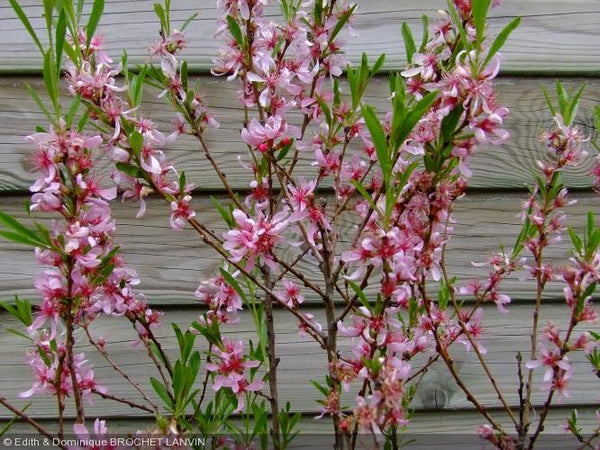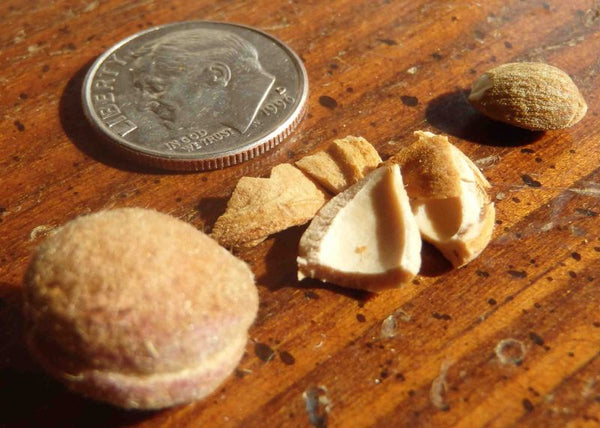Russian almond tree (prunus tenella)
Shipping calculated at checkout
130 in stock
Need more? Contact us
Zone 2b
Prunus tenella is a deciduous shrub that grows from 80 cm (2 feet 7 inches) to 1.5 m (5 feet).
It is hardy to zone 2b in Canada and the United States. It flowers in April or May and the almonds ripen from July to August. The flowers are hermaphroditic (have male and female organs) and are pollinated by insects. Suitable for: light (sandy), medium clay and heavy (clay) soils and prefers well-drained soils. Suitable pH: acidic, neutral and basic (alkaline) soils. It can grow in semi-shade (light wood). It prefers fairly dry soil and a sandy clay loam is a great place to plant it.
Nuts: - can be processed raw or cooked, or even boiled to remove toxic components. refer to the processing of oak acorns. The fruit is quite variable in quality, the best forms are a little mealy with a fairly pleasant flavor. The fruit is approximately 25 mm in diameter and contains one large seed. Seeds - raw or cooked. Do not eat the almond if it is too bitter. The oil from the seed is used as an almond flavoring, it is inferior to the bitter almond oil obtained from P. dulcis.
Caution: Although no specific mention is made for this species, it belongs to a genus where most, if not all, members of the genus produce hydrogen cyanide, a poison that gives almonds their characteristic flavor. This toxin is mainly found in the leaves and seeds and is easily detected by its bitter taste. It is generally present in too small an amount to cause serious harm, but any very bitter almond should not be eaten. In small amounts, hydrogen cyanide has been shown to stimulate breathing and improve digestion; it is also claimed to be beneficial in the treatment of cancer. In excess, however, it can cause respiratory failure and even death.
The Russian almond tree grows in well-retained and moisturizing loamy soil. It prefers some lime in the soil, but is likely to become chlorotic if too much lime is present. Requires a sunny position. Winter dormant plants are hardy to about -25°C to -32°C. Most members of this genus have shallow roots and will produce suckers if the roots are damaged. This plant is a suckering shrub of medium growth spreading slightly.



